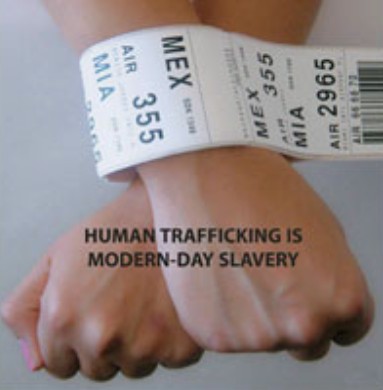Anti-Slavery Day – October 18th
guest | October 18th, 2012 in : days of significance, General, other interesting stuff, social practices
Today is Anti-Slavery Day, a day to raise awareness of modern day slavery and to inspire people to eliminate it. The transatlantic slave trade was abolished and outlawed in 1807 and slavery is internationally prohibited in the Universal Declaration of Human Rights. However, there is still an estimate of 12.3 million people worldwide forced to work for little or no pay.
The transatlantic slave trade was abolished and outlawed in 1807 and slavery is internationally prohibited in the Universal Declaration of Human Rights. However, there is still an estimate of 12.3 million people worldwide forced to work for little or no pay.
Bonded labour is the least well-known, yet the most common form of modern slavery. Bonded labour, or debt bondage, means that a person’s labour is demanded as a means for repayment for a loan. A bonded labourer often works for no pay, seven days a week. Bonded labour is sometimes passed on for generations and may involve entire families. It is most common in South-Asia, in cottage industries and in factories, but it can also be found in parts of Africa, the Caribbean, and South-East Asia.
Other forms of modern day slavery are forced marriage, child labour, forced labour, slavery by descent, and human trafficking. Human trafficking, especially, have been debated in the media in recent years. Hundreds of children every year are trafficked for sexual exploitation in the UK, but in 2011, for example, only eight convictions were made. Nearly every country is involved in the web of trafficking activities, either as a country of origin, destination or transit. The United Nations estimates that 700,000 to 4 million women and children are trafficked around the world every year. Trafficking is estimated to be a $7 billion dollar annual business.

Tags: bonded labour, modern slavery, slave trade, slavery, trafficking

 Hello, I'm Deborah Swallow and, for the last fifteen years, I've worked in over thirty countries addressing the complexities of people working internationally across multiple cultures, so individuals and organisations alike can gain an authentic competitive edge and win in international markets.
Hello, I'm Deborah Swallow and, for the last fifteen years, I've worked in over thirty countries addressing the complexities of people working internationally across multiple cultures, so individuals and organisations alike can gain an authentic competitive edge and win in international markets. 